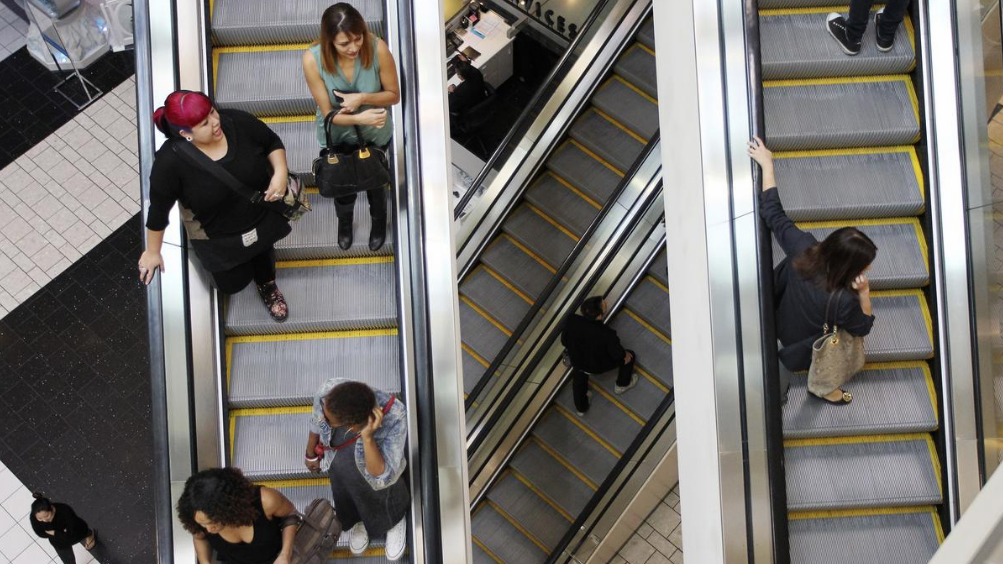

This year's holiday season could be tighter for many Americans if the U.S. government imposes tariffs on another 300-billion-U.S.-dollars' worth of Chinese imports – because that will include tech products, game consoles, toys, cribs, ornaments and Santa hats.
The tariffs would add 25 percent to the import cost of these and many other consumer items just as retail outlets throughout the world's largest economy begin to gear up for the peak end-of-year shopping season.
Consumers have been largely shielded until now from the direct impact of the trade war between China and the United States as the administration of President Donald Trump has focused previous rounds of tariffs on imports sold to manufacturers rather consumers.
But Trump is escalating the trade war and preparing to extend tariffs to nearly all Chinese imports after talks for a deal broke down in May. The U.S. government is pushing for wide-ranging economic and trade reforms from Beijing.

VCG Photo
Trump said he would decide whether to trigger the next round of tariffs after talks with Chinese President Xi Jinping at the G20 summit in Japan later this month.
In preparation for the new round, the U.S. Trade Representative's Office (USTR) on Monday began seven days of hearings for testimony from retailers, manufacturers and others impacted. Thousands of businesses filed comments to the USTR ahead of the hearings.
Toys, phones and televisions are all on the tariff list and represent some of the most valuable categories of products that Americans buy from China, according to a Reuters analysis of data from the U.S. Census Bureau.
The new tariffs would hit cellphones whose import bill from China totaled 43 billion U.S. dollars in 2018 – more than 80 percent of total cellphone imports.

VCG Photo
They would also cover a broad set of toys, including scooters and doll carriages, whose imports totaled 11.9 billion U.S. dollars last year. China supplied about 85 percent of America's total imports of those toys.
Further pain for parents could come in the form of proposed levies on more than 5-billion-U.S.-dollars' worth of video game consoles. Chinese imports amounted to 98 percent of total U.S. imports of those consoles last year.
And U.S. imports from China of targeted Christmas products – including ornaments, nativity scenes and Christmas tree lights – totaled at least 2.3 billion U.S. dollars last year.
An executive from a family-owned, Christmas goods supplier in upstate New York said the company has looked "long and far" to find another supplier for many typical holiday products.
"However, trying to find other countries to manufacture everything else, from Santa hats, to stockings, to glass ornaments, has been a struggle and we have been unable to do so," Nathan Gordon of Gordon Companies Inc. in Cheektowaga said in public comments posted on June 12.

VCG Photo
He's making a list
Some products previously spared by the Trump administration to avoid hitting consumers' pockets are now on the list. That includes an array of safety and play equipment for children – including high chairs, play pens and swings.
The proposed tariffs would hit at least 800 million U.S. dollars of these goods.
Smart watches, smart speakers and Bluetooth audio are also included. The Consumer Technology Association estimates that 2018 imports in this category from China were up to 17.9 billion U.S. dollars.
Retailers Walmart Inc., Target Corp. and more than 600 other companies urged Trump in a letter last week to resolve the trade dispute with China, saying tariffs hurt American businesses and consumers.

VCG Photo
Worry over potential cost increases for Americans from tariffs has raised concern about inflation, though across the economy, prices rises remain below the U.S. Federal Reserve target of 2 percent.
Trump has said that China pays the tariffs, but U.S. importers actually foot the bill and pass them on to either consumers or suppliers.

Copyright © 2018 CGTN. Beijing ICP prepared NO.16065310-3
Copyright © 2018 CGTN. Beijing ICP prepared NO.16065310-3